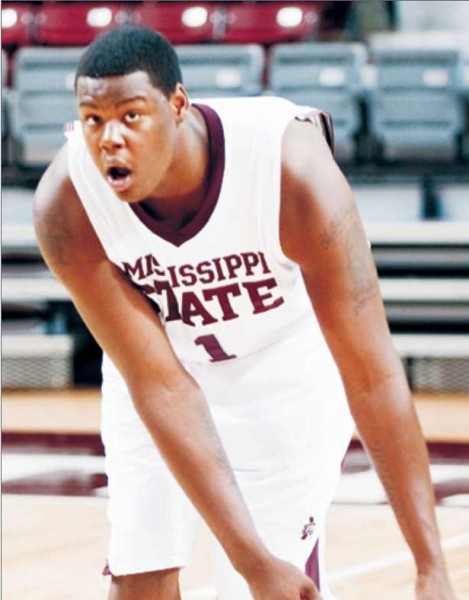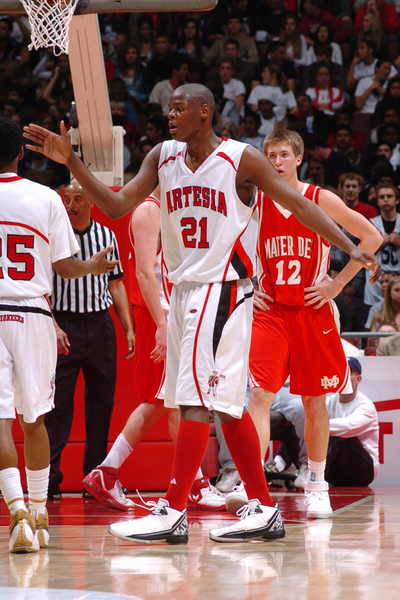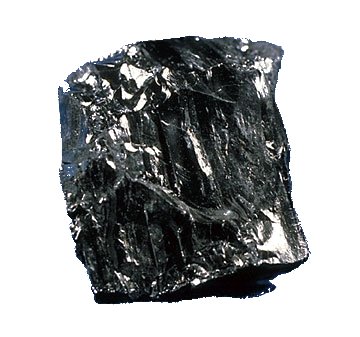Summer School in the SEC
Posted by Brian Goodman on August 7th, 2010 Jared Quillen from Big Blue Cats is the RTC correspondent for the SEC.
Jared Quillen from Big Blue Cats is the RTC correspondent for the SEC.
News: At the spring meetings in Destin, Florida, SEC officials discussed scrapping the divisional format in conference tournament play. Under the current system, the top two teams in each division get a bye in the opening round of the SEC tournament. Going to a one-through-twelve seeding instead of two groups of one-through-six would effectively protect the top teams in the SEC, and increase the likelihood of the SEC getting five, six, or even seven teams in the NCAA tournament (the goal should be eight). Last year Mississippi State and Mississippi finished first and second, respectively, in the Western division, but only fifth and sixth overall in the conference behind Eastern division teams Kentucky, Vanderbilt, Tennessee, and Florida, yet both teams were awarded opening round byes in the conference tournament and still missed the NCAA Tournament.
The West as a whole finished a putrid 9-27 against the East. Take away the West’s five wins against Georgia and it gets really ugly. Despite the uneven seeding the Eastern division managed to go 8-3 in the SEC tournament, so there is a strong case for going to a one-through-twelve tournament.
As you might expect, SEC West coaches wanted to keep the status quo. As Arkansas coach John Pelphrey put it, “There was a lot of discussion about it. I was for the way things are right now. Year in and year out, the fairest way to do it was to seed it by how you fare in your division,” which is pretty much what you would expect from a coach whose team finished third in the West but only seventh overall. “The problem is….you could have a team in the East that has a similar or same record as a team in the West, but it’s really a different record because of the teams you’re playing.” SEC teams play teams in their division twice and non-division opponents once. “What happens when you have two teams vying for a bye, and they have the same record?” as Florida coach Billy Donovan said. “That’s where we came to a stalemate. We didn’t know what direction to go.”
Donovan highlights a good point as all of the coaches prefer keeping the current divisional format for league play and, as Tennessee’s Bruce Pearl explained, “There was some concern that if they re-seeded the SEC tournament one through twelve (like the Big 12), it would be the first step to doing away with the divisions.” In the end the SEC opted to do just as they did when other conferences were trading teams — nothing. It remains the opinion of Rush The Court, however, that the best and fairest system is to reward the teams with the best records and play a one through twelve tournament.
Coaching Carousel: On March 24th Tony Barbee was hired to replace Jeff Lebo at Auburn whose teams went 96-93 during Lebo’s six-year tenure. Barbee will be one of six coaches in the SEC with three years or less in the league, a list that includes up-and-comers Pelphrey (three years), Anthony Grant (two), Darrin Horn (two), Trent Johnson (two), and Mark Fox (one). With this crew in place, the SEC has a glut of rising coaches equaled by no conference in America. The sad reality, however, is that there are only so many wins to go around, and some of these coaches are going to lose their up-and-coming status just as Kentucky’s Billy Gillispie and Georgia’s Dennis Felton did.
Recruiting: The SEC boasts 18 players in ESPN’s top 100, a number matched only by the ACC. Indeed, five of twelve SEC teams brought in at least two players in the top 100, including Kentucky with five. That’s the kind of talent the SEC’s going to need if the league is to reestablish itself as a dominant basketball conference.
Power Rankings The following rankings are not necessarily a prediction of order of finish as much as an indicator of which teams have done the most to improve and to address deficiencies in the off-season.
- Kentucky – Kentucky’s entire team (John Wall, DeMarcus Cousins, Pattrick Patterson, Eric Bledsoe, Daniel Orton) went to the NBA. Kentucky also lost Perry Stevenson, Ramon Harris and Mark Krebs to graduation, and Darnell Dodson is gone for the season for undisclosed reasons. So what did John Calipari do? He signed the number one class in the America, again. Calipari’s haul includes five top 50 players in point guard Brandon Knight, shooting guard Doron Lamb, small forward Stacey Poole, power forwards Terrence Jones and Enes Kanter, and center Eloy Vargas who comes to Kentucky after playing one year at Florida and one year at Miami Dade College. The new Cats will be asked to contribute immediately as Kentucky will enter the 2010-11 season with only four returning scholarship players, two of which played less than five minutes per game last year. Time will tell, however, if number one in the summer power rankings translates into another SEC championship and deep NCAA run.
- Tennessee – Tennessee had as turbulent a season as any team in America last year, losing Tyler Smith for the season and Cameron Tatum, Melvin Goins and Brian Williams to suspension early in the year. After the Volunteers barely lost to Michigan State — just missing their first Final Four in the process — they also lost seniors Bobby Maze, Wayne Chism and J.P. Prince. Coach Bruce Pearl has proven himself one of the better recruiters in the nation, however, and this year is no different. Pearl brings in top flight power forward Tobias Harris and talented shooting guards Jordan McRae and Trae Golden. Pearl also adds John Fields, a transfer from UNC Wilmington. Fields, a 6’9” forward who played one year after Wilmington after playing two years at East Carolina, will have one year of eligibility remaining and should be able to play immediately as NCAA rules allow a transfer player who has graduated to play immediately if he is enrolling in graduate school. Last year Fields averaged 10.2 points per game and 8.7 rebounds in one season at Wilmington where he also set the school single game rebounding record with 21 against Towson.
- Florida – Florida could use a little depth up front and that’s about it. The Gators return their entire starting five and all but five of their 72 points per game. After just slipping into the NCAA Tournament last year, Florida enters the 2010-11 season as the SEC favorite and a legitimate top ten team. With no significant losses, freshmen power forwards Patric Young, Will Yeguete, and Cody Larsen will fill the final pieces in Florida’s march back to relevance after three less-than-stellar years following its two championships. Coach Donovan also brings in shooting guard Casey Prather and early high school graduate Scottie Wilbekin at point guard. Donovan is already adding talent for 2011, as well. Rutgers’ leading scorer Mike Rosario will sit out this season and be eligible for next year. Look for Donovan’s critics to hush now that the Gators are back on track. Read the rest of this entry »




















































